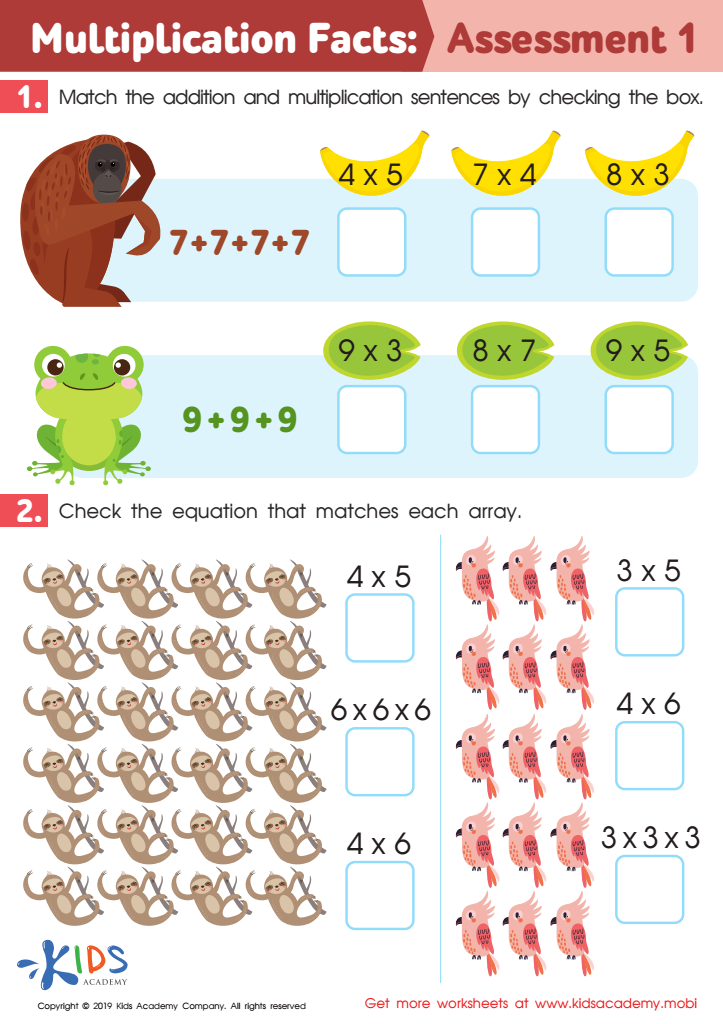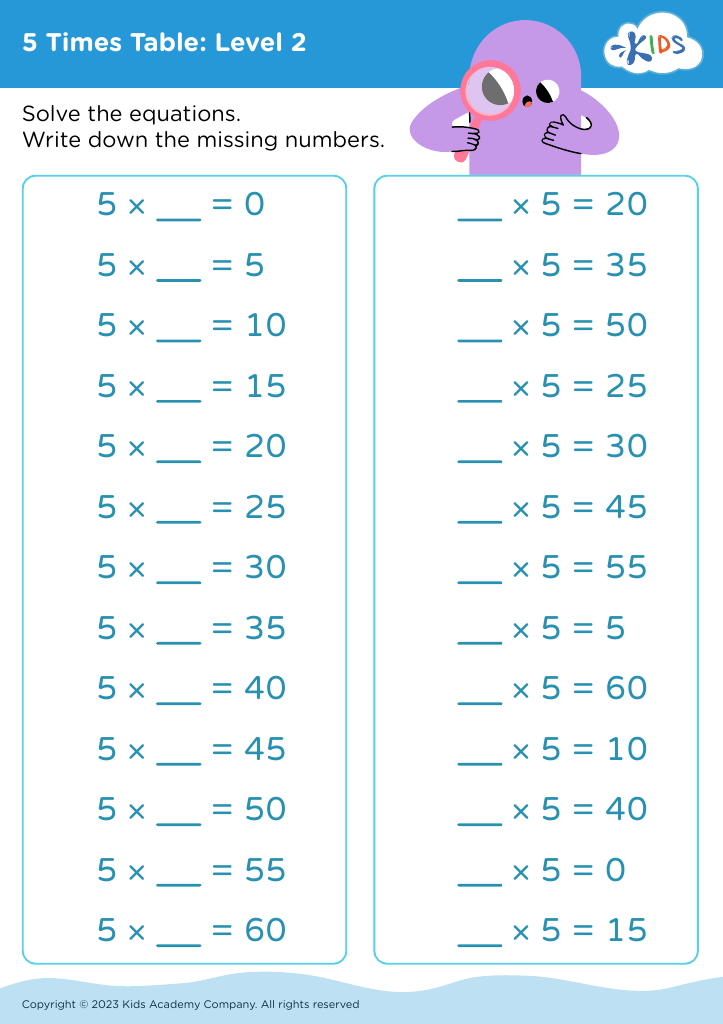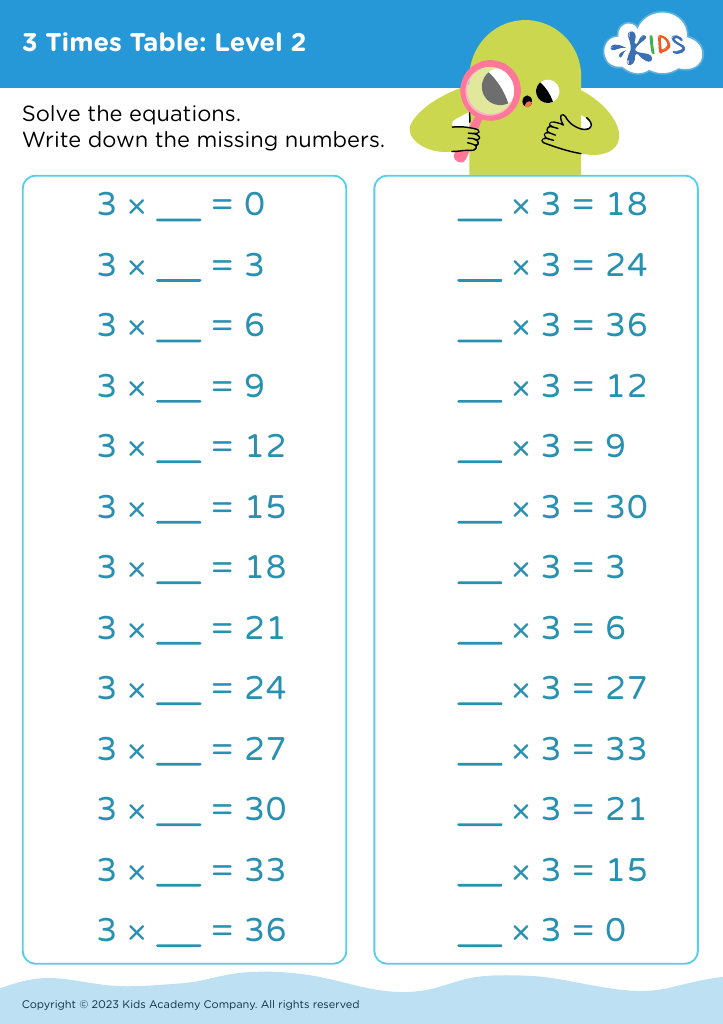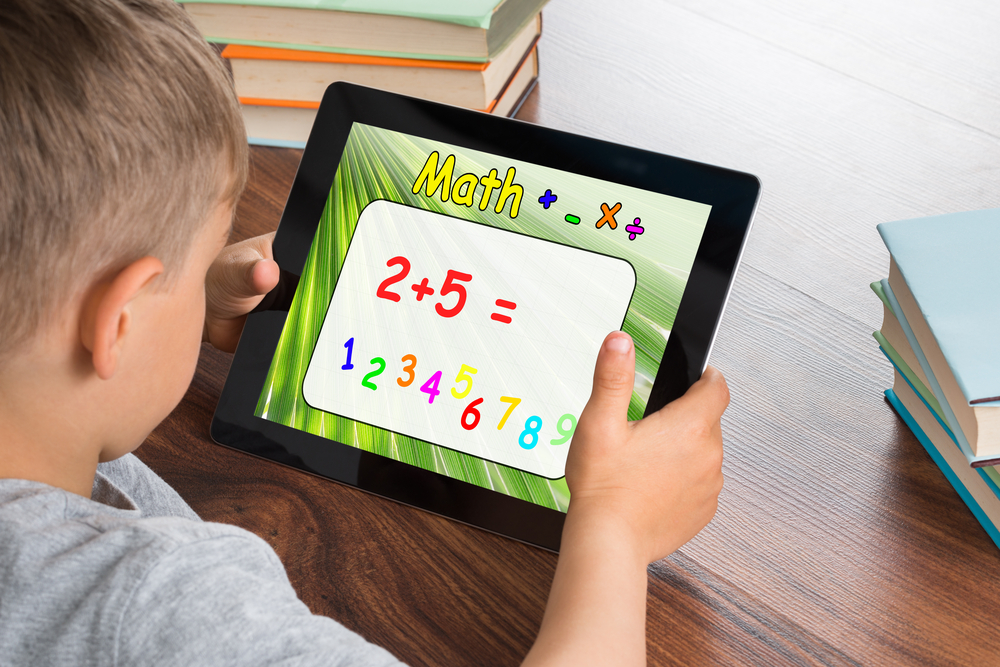Mental arithmetic skills Normal Worksheets for Ages 6-8
3 filtered results
-
From - To
Enhance your child's mental arithmetic skills with our engaging worksheets designed for ages 6-8. Our collection features a variety of fun and interactive activities that promote basic math concepts such as addition, subtraction, and number sense. These normal worksheets help children develop their mental calculation abilities, improve their speed, and boost their confidence in mathematics. Ideal for home practice or supplemental classroom resources, our materials are aligned with educational standards to support young learners. Explore the exciting world of mental math and watch your child flourish as they tackle these worksheets with enthusiasm and ease!


Multiplication Facts: Assessment 1 Worksheet
Mental arithmetic skills are essential for children aged 6-8 as they lay the foundation for broader mathematical understanding and problem-solving abilities. At this age, children are just beginning to develop number sense, making it critical for parents and teachers to actively engage in enhancing these skills.
Firstly, strong mental arithmetic fosters confidence in young learners, enabling them to tackle more complex mathematical concepts in the future. As children predictably encounter math in everyday life, from making purchases to timing activities, solid mental calculation aids in practical decision-making. This competency further nurtures critical thinking skills, as mental arithmetic promotes the ability to analyze problems and develop multiple methods to solve them.
Moreover, by instilling mental math fluency, educators and parents can create a positive learning atmosphere. This diminishes math anxiety often observed in later years, allowing for a more enjoyable educational experience. Additionally, mental arithmetic helps cultivate perseverance; as children practice and improve their skills, they learn the importance of effort and resilience in facing challenges.
In summary, nurturing mental arithmetic skills during ages 6-8 is vital, forming pivotal life skills that extend beyond the classroom, into real-world applications and everyday interactions.
 Assign to My Students
Assign to My Students

















